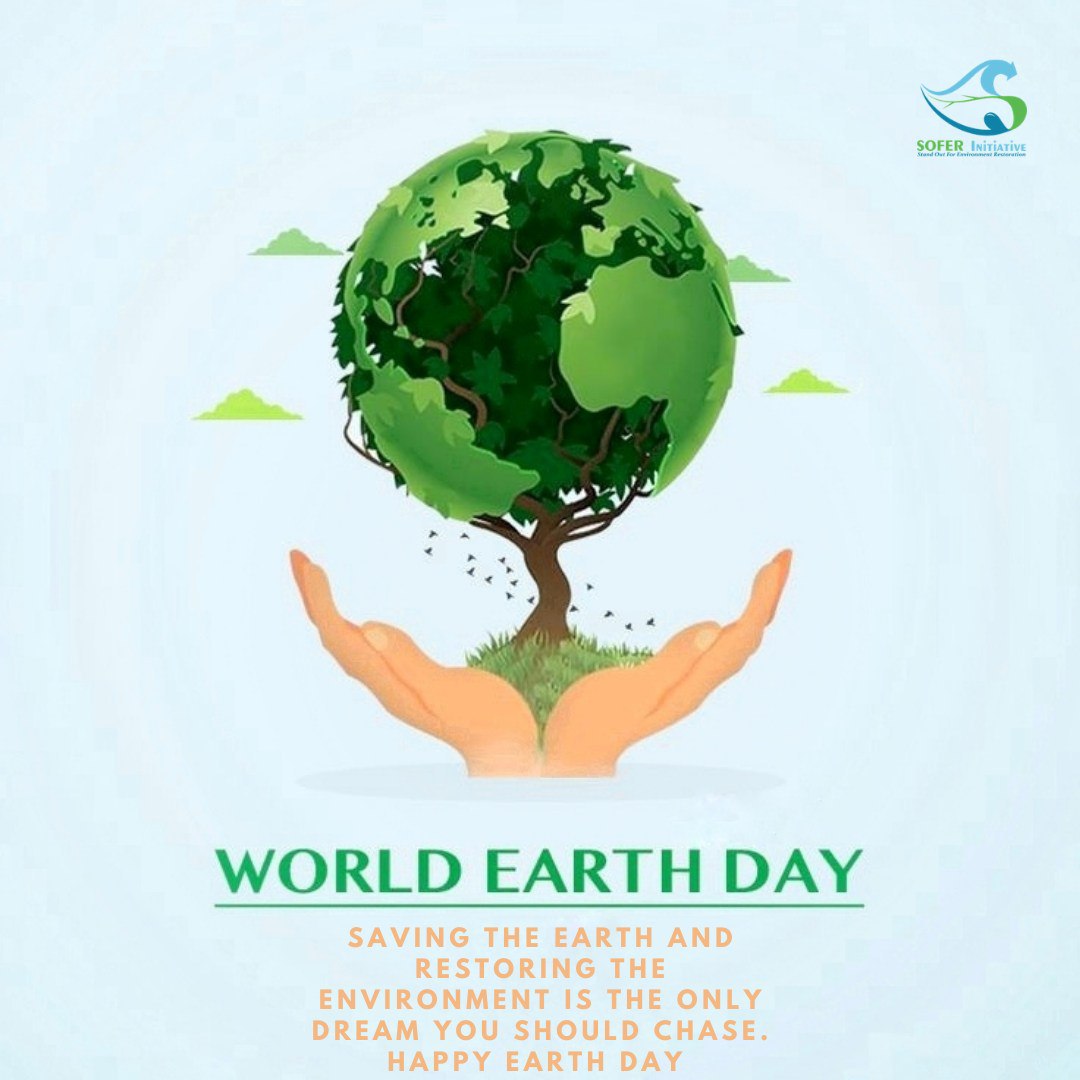As greenhouse emission bite hard, species go extinct, people die from dangerous human activities and natural disasters, one can only but admit that the earth is under attack. This is even crazier because as humans, we can’t live beyond the quality of our environment. As the earth deteriorates, so do we. Several ecosystems are on the verge of collapse due to harmful human activities but as troubling as it sounds, many people still do not understand the scope of problems which the earth is faced with today.
It is against this backdrop that World Earth Day is celebrated on the 22nd of April every year; ever since it became a movement in 1970. So far it has worked with over 75,000 partners spread across 192 countries creating awareness on the imminent danger the earth faces and also inspired people, groups and organisations to take action against some phenomenon such as Warming Oceans, Deforestation, Coral Bleaching, Plastic Pollution, Melting Arctic Sea or Climate change. If we want the coming generation to see some of the endangered species we have around today or even have a planet to call home, we need to increase science based education so that the populace can make better decisions regarding the environment. Celebrating World Earth Day and all it stands for, we should keep in mind that so many things threaten the existence of our beloved Planet and tackle them head on.
CLIMATE CHANGE
According to World Health Organisation, climate change is expected to cause approximately 250,000 deaths per year between 2030 and 2050. This will mostly be from Malaria, diarrhoea, and heat stress. Since the beginning of the industrial revolution, the rate of global warming has increased significantly. Most especially in the last decade, the world has witnessed more energy consumption than any other decade in history. The more energy we consume, the warmer the earth becomes and consequently, more extreme weather conditions we will experience. A healthy planet will mean clean drinking water, clean food and clean air to breath. This cuts across the three basic elements necessary for existence— land, water and air but Climate change threatens to reduce their availability
DEFORESTATION
Forest covers about 30% of the world surface area but this is fast changing due to urbanization and other activities such as felling of trees for commercial purposes, constructing houses or factories, mining, grazing livestock and crop cultivation. Trees are deeply rooted in dirt, making sure that erosion does not take place but when cut down, it leaves the soil open to be displaced by wind and water. With the increasing cases of erosion, we are all thrown open to flooding and its attending dangers. With the incessant felling of trees, water cycle will not be properly regulated. The fewer trees we have, the lesser water is returned to the soil, leading to dry soil and consequently cultivation of crops will be affected. We will be more prone to global warming if deforestation continues as trees help in absorbing the dangerous greenhouse gases entering the atmosphere. Also, about 80% of the earth’s land animals and plants call the forests their home. Tampering with it means killing out the natural habitat of these animals and those that cannot adapt are left open to sicknesses, death and extinction.
CORAL BLEACHING
Given the increased concentration of greenhouse gases in the atmosphere, the ocean absorbs large quantities of heat, causing ocean temperature to rise. This makes the ocean warmer; which is not good for the coral reefs that lay beautifully underneath. Coral reefs are very essential to life force on earth as over a quarter of marine life depends on it for their survival. It serves as a habitat for more than 4,000 species of fish, 700 species of coral, and thousands of other plants and animals, Apart from this, they protect coastlines from the damaging effects of wave action and tropical storms.
PLASTIC POLLUTION
The indiscriminate usage and dumping of non-biodegradable items also causes problems to both the lands and oceans. According to statistics, the mass of plastics detritus in ocean is so vast that by the year 2050, there will be more plastic than fish in the ocean. Most sea animals mistake some of these plastics we throw into the ocean as food and even swallow them, causing severe complications and deaths. The combustion of these plastics also pollutes the air and makes us prone to sicknesses that would easily be averted if we make efforts to change.
We need to look the way of renewable energy, plant more trees than we cut down and also curb the way we dispose of non-biodegradable items indiscriminately. Due to some socio-economic variations, not everyone can afford an electric car or stop consuming animal based products but a conscious effort by everyone will go a long way in helping us win the fight in the long run.

